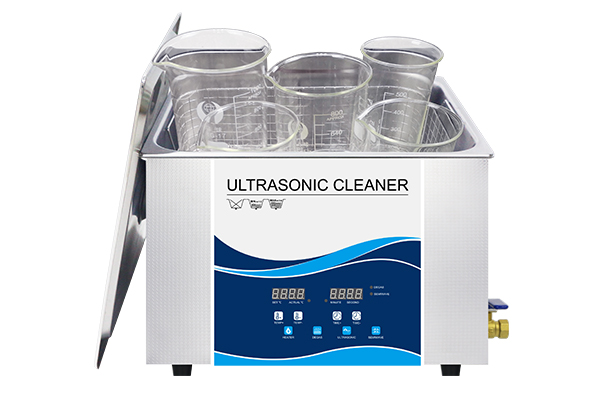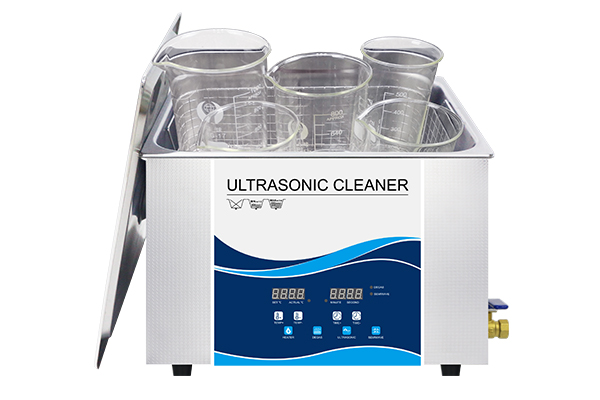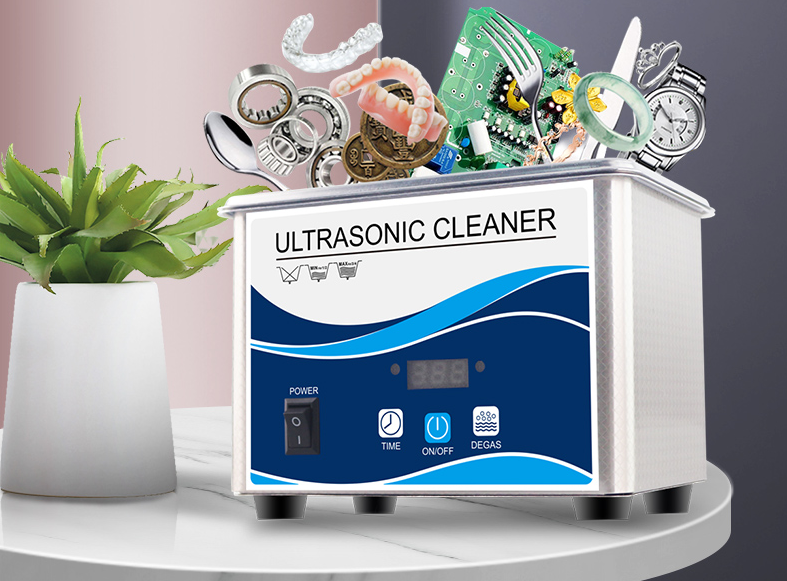In modern industries, the cleaning of parts plays a crucial role, especially for high-precision components and high-performance parts. Traditional cleaning methods often fail to meet the stringent cleaning requirements, while ultrasonic cleaning machines have become a preferred choice in various industries due to their high efficiency and environmental friendliness. So, what is the role of ultrasonic cleaners for parts, and why are they increasingly replacing conventional cleaning methods?
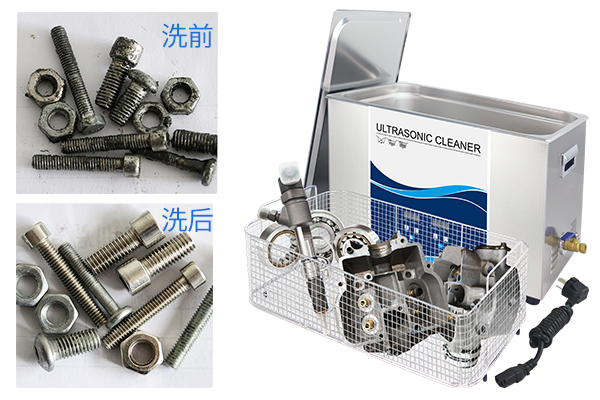
What is an Ultrasonic Cleaner for Parts?
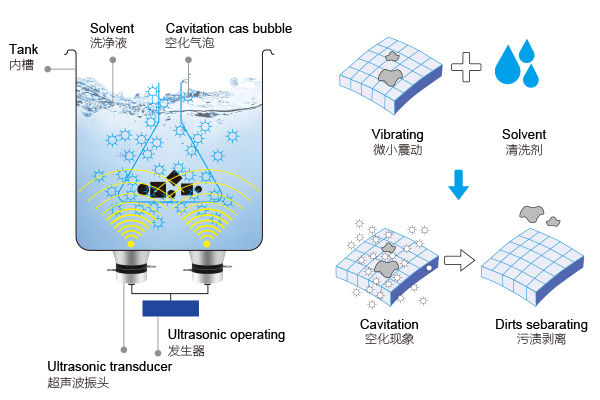
An ultrasonic cleaner for parts is a device that utilizes ultrasonic waves to clean components. When ultrasonic waves pass through a liquid medium, they generate tiny bubbles that implode with force, creating powerful shockwaves that remove dirt, grease, and other contaminants from the surface of parts. The cleaning effect of ultrasonic cleaning is far superior to traditional mechanical or chemical cleaning methods, especially for parts with complex shapes and fine details.
The Role and Advantages of Ultrasonic Cleaners for Parts
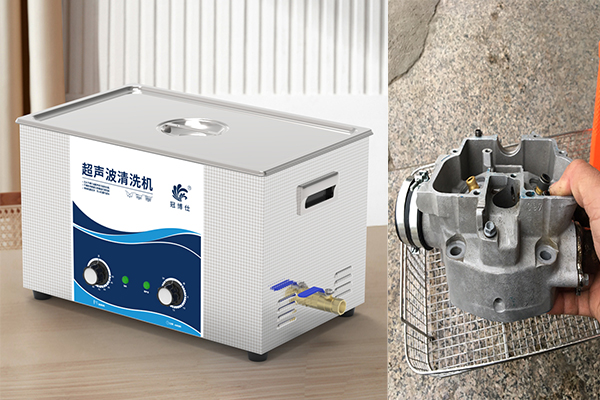
1. High Efficiency and Time Saving
Ultrasonic cleaners operate by generating high-frequency vibrations, which can quickly penetrate into every tiny gap and hole of the parts, achieving thorough cleaning. This cleaning method is much faster and more efficient compared to traditional manual or spray cleaning methods, significantly saving production time.
2. Precise Cleaning for Complex Components
For parts with complex structures or irregular shapes, traditional cleaning methods often fail to achieve a thorough cleaning. Ultrasonic cleaners, on the other hand, use micro-bubbles and strong shock forces to reach and clean hard-to-reach areas, ensuring a high level of cleanliness on every surface.
3. Environmentally Friendly and Pollution-Free
Unlike traditional chemical cleaning methods that require the use of hazardous solvents, ultrasonic cleaning is an environmentally friendly process that eliminates the need for harmful chemicals. It provides effective cleaning while reducing environmental pollution, aligning with current environmental regulations.
4. Reduced Wear and Extended Service Life
Ultrasonic cleaning is a gentle process that effectively minimizes physical wear and tear on parts. Compared to traditional mechanical cleaning, ultrasonic cleaning preserves the integrity of parts, protecting delicate surfaces and extending their service life.
5. Cost Savings
The efficient cleaning process of ultrasonic cleaners not only saves time but also reduces the costs associated with cleaning agents and labor. Over time, this leads to significant cost savings, improving the overall competitiveness of businesses.
Applications of Ultrasonic Cleaners for Parts
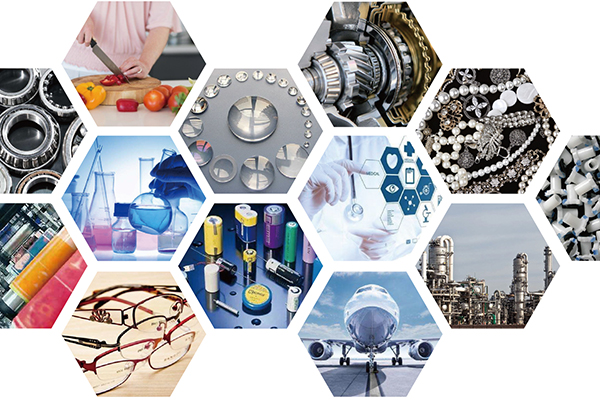
1. Automotive Manufacturing
In the automotive industry, the cleaning of parts is crucial, especially for critical components like engines and fuel injection systems. Ultrasonic cleaners efficiently remove grease, dirt, and other contaminants, ensuring that parts meet the necessary precision and functional standards.
2. Electronics Industry
In the electronics industry, parts such as circuit boards, connectors, and chips often require extremely high cleanliness standards. Ultrasonic cleaning removes fine dirt and residues, preventing the performance of electronic components from being affected by contaminants, thereby improving product quality.
3. Aerospace Industry
In the aerospace sector, parts must meet very high precision and safety standards. Ultrasonic cleaners are used to remove grease, dirt, and other residues from parts, ensuring compliance with strict performance standards and improving the reliability and safety of components.
4. Medical Industry
The medical industry demands strict cleanliness for equipment and instruments, especially those that come into contact with bacteria or viruses. Ultrasonic cleaners provide deep cleaning while also helping to disinfect surfaces, ensuring the hygiene and safety of medical devices.
5. Precision Machining
For the precision machining industry, ultrasonic cleaners are essential for removing cutting fluids, oils, and other contaminants after machining. This ensures that parts maintain their surface finish and high machining accuracy.
Choosing the Right Ultrasonic Cleaner for Parts
When selecting an ultrasonic cleaner for parts, several factors need to be considered, such as the material of the parts, cleaning requirements, production efficiency, and environmental standards. A high-quality ultrasonic cleaner should not only have advanced ultrasonic generation technology but also feature an efficient cleaning solution, accurate temperature control, and reliable operational performance.
Conclusion: Ultrasonic Cleaning Technology Leading the Future of Parts Cleaning
In conclusion, ultrasonic cleaners for parts are becoming increasingly important due to their high efficiency, precision, and environmental benefits. Whether in the automotive industry, electronics manufacturing, or medical equipment cleaning, ultrasonic cleaning technology provides unmatched advantages. As the technology continues to evolve, ultrasonic cleaners will play a key role in more industries, offering businesses efficient and eco-friendly cleaning solutions.


